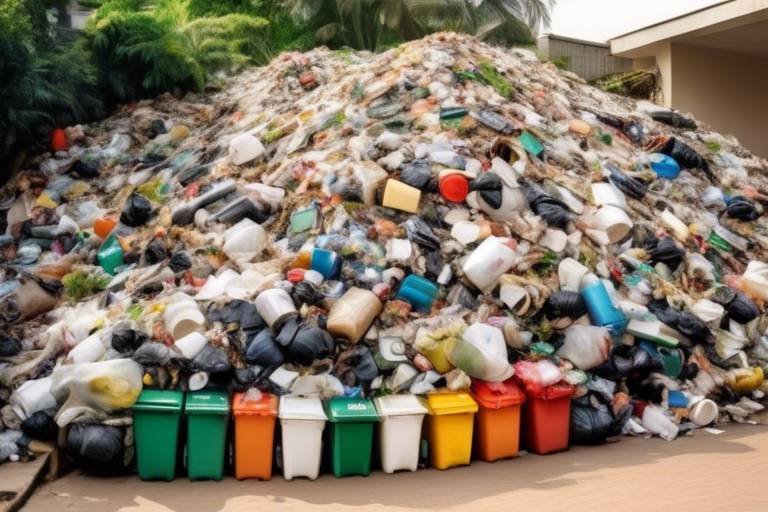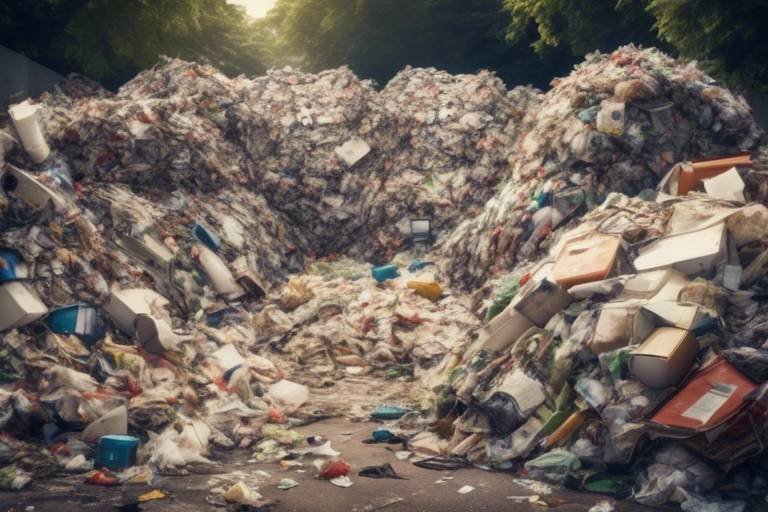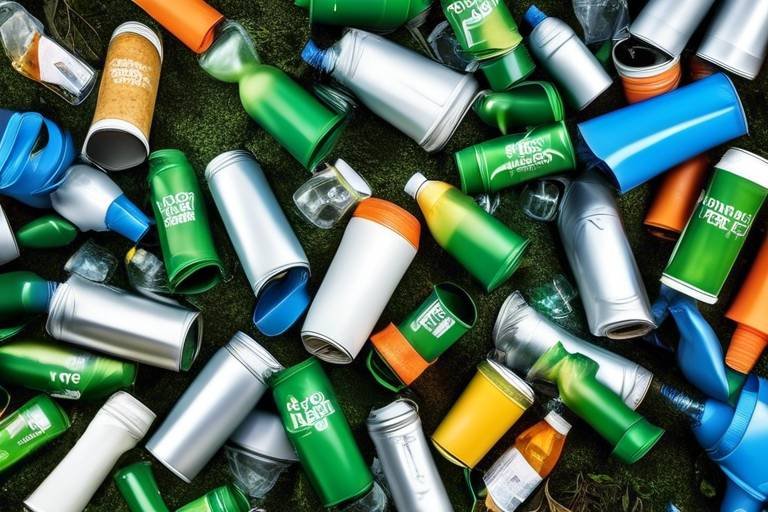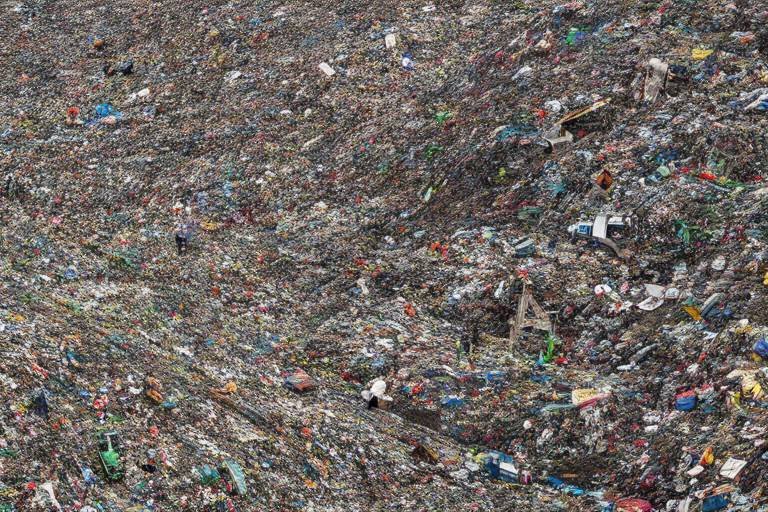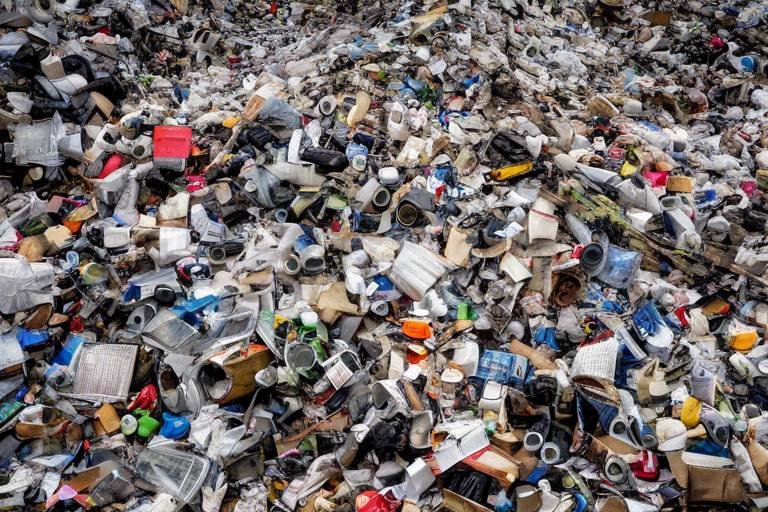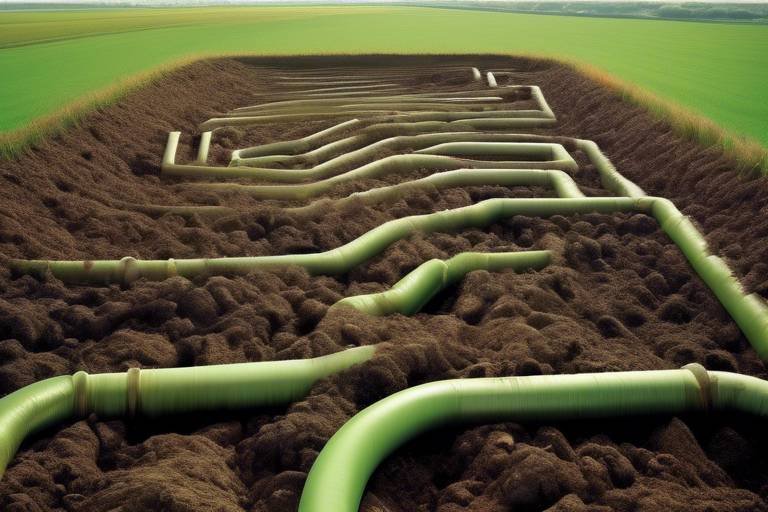The Role of Bees in Organic Waste Management
Bees are often celebrated for their role in pollination, but their contributions extend far beyond just helping flowers bloom. In the realm of organic waste management, these tiny powerhouses play a significant role that many people might not be aware of. By understanding how bees interact with organic materials, we can harness their abilities to create a more sustainable environment. Imagine a world where waste is not merely discarded but transformed into a resource, and bees are at the heart of this transformation!
In urban and agricultural settings, the integration of bees into waste management practices can lead to remarkable outcomes. Not only do they help in breaking down organic matter, but they also contribute to soil health and plant vitality. This article delves into the fascinating ways bees can enhance sustainability practices, making them indispensable allies in our quest for a healthier planet.
Bees are crucial players in maintaining biodiversity and ecosystem health. Their pollination activities are essential for plant reproduction, which in turn supports food production and habitat stability. Without bees, many plants would struggle to reproduce, leading to a decline in food sources for various species, including humans. Think of bees as the unsung heroes of the ecosystem, tirelessly working to keep our environment flourishing.
Utilizing bees in organic waste management can significantly reduce waste. They help decompose organic materials, turning them into nutrient-rich compost that benefits soil health and plant growth. This natural process not only minimizes landfill waste but also enhances the quality of the soil, creating a win-win situation for both the environment and agriculture.
Bees can aid in the composting process by breaking down organic matter. This symbiotic relationship enhances compost quality and accelerates the decomposition of waste materials. When bees are present, they help to aerate the compost pile, facilitating the breakdown of organic materials and speeding up the composting process. It’s like having a team of tiny workers ensuring that everything runs smoothly!
Implementing bee-friendly composting techniques is essential to ensure that bees thrive while contributing to waste management. These methods include:
- Using natural materials like kitchen scraps and yard waste.
- Minimizing chemical inputs that can harm bee populations.
- Creating sheltered composting areas that provide a safe environment for bees.
By adopting these techniques, we not only support bee populations but also enhance the composting process, leading to better waste management outcomes.
Compost enriched by bees offers various benefits, including:
- Improved soil structure: Bees help create a more aerated and nutrient-rich compost.
- Increased nutrient availability: The decomposition process facilitated by bees makes nutrients more accessible to plants.
- Enhanced microbial activity: Bees promote a healthy microbial community that is essential for soil health.
All of these factors contribute to healthier plant growth, making the role of bees in composting invaluable.
The synergy between pollination and waste management is vital for sustainable agriculture. Bees facilitate the growth of plants that can absorb organic waste, creating a closed-loop system. This means that not only do bees help produce food, but they also assist in managing the waste generated by agricultural practices. It’s a beautiful cycle where everything is interconnected!
Despite their significant contributions, bees face numerous challenges, including habitat loss, pesticides, and climate change. Understanding these threats is essential for developing strategies to protect them and enhance their role in organic waste management. If we want to continue benefiting from the services bees provide, we must act now to address these challenges.
Various conservation efforts aim to protect bee populations. These initiatives focus on habitat restoration, pesticide regulation, and public awareness to ensure bees can continue their vital work in ecosystems. By supporting local and global initiatives, we can contribute to the preservation of bee populations and, in turn, the health of our planet.
Community involvement is crucial for bee protection. Local initiatives, such as community gardens and pollinator-friendly practices, can foster environments where bees thrive and contribute to organic waste management. When communities come together to support bee populations, they not only enhance their local ecosystems but also create a sense of unity and purpose.
Q: How do bees contribute to composting?
A: Bees help break down organic matter and aerate compost piles, accelerating the decomposition process and improving compost quality.
Q: What are bee-friendly composting techniques?
A: Techniques include using natural materials, minimizing chemical inputs, and creating sheltered composting areas.
Q: Why are bees important for agriculture?
A: Bees are essential for pollination, which supports plant reproduction and food production, creating a sustainable agricultural system.
Q: What challenges do bees face?
A: Bees face challenges such as habitat loss, pesticide exposure, and climate change, which threaten their populations and ecological roles.
Q: How can communities help protect bees?
A: Communities can help by creating pollinator-friendly gardens, supporting local conservation efforts, and raising awareness about the importance of bees.

The Importance of Bees in Ecosystems
Bees are not just buzzing around aimlessly; they are the unsung heroes of our ecosystems. Their role in maintaining biodiversity is nothing short of miraculous. When you think about it, bees are like the glue that holds various elements of nature together. Without them, many plants would struggle to reproduce, leading to a domino effect that could disrupt entire ecosystems. Imagine a world where flowers don't bloom and fruits don't grow—sounds bleak, right?
One of the most significant contributions of bees is their pollination activity. As they flit from flower to flower, gathering nectar, they inadvertently carry pollen, facilitating plant reproduction. This process is essential not just for food production but also for maintaining habitat stability. In fact, it’s estimated that about 75% of the world’s flowering plants depend on animal pollinators, with bees being the most effective among them. Without these little creatures, our diets would be less diverse, and many crops would simply vanish.
Moreover, bees contribute to the health of the soil. Healthy plants lead to healthier soil, which in turn supports a variety of organisms that thrive in rich, organic environments. The intricate relationships between plants, soil, and the myriad of organisms living within it create a balanced ecosystem. This balance is crucial for sustainable agriculture, as it promotes resilience against pests and diseases. In essence, bees are not just pollinators; they are vital players in the complex web of life.
Interestingly, bees also help in the preservation of genetic diversity among plants. By pollinating a wide range of species, they ensure that various plants can adapt to changing environmental conditions. This genetic diversity is crucial for the resilience of ecosystems, especially in the face of challenges like climate change and habitat destruction. So, the next time you see a bee buzzing by, remember that it's not just a cute insect—it's a cornerstone of our ecosystem.
In summary, the importance of bees in ecosystems cannot be overstated. They facilitate plant reproduction, enhance soil health, and contribute to genetic diversity, all of which are essential for a thriving environment. Protecting bees is not just about saving a species; it's about preserving the intricate balance of nature that sustains us all. So let’s give a round of applause to these tiny yet mighty creatures!

Bees and Organic Waste Reduction
When we think about bees, we often imagine them buzzing around flowers, collecting nectar and pollen. However, their role extends far beyond just pollination. Bees are unsung heroes in the realm of organic waste management. They contribute significantly to reducing organic waste by breaking down materials that would otherwise pile up in landfills. This natural process not only minimizes waste but also enriches the soil, creating a healthier environment for plants to thrive.
So, how do bees contribute to organic waste reduction? One of the most fascinating aspects of their behavior is their ability to help decompose organic matter. As they forage and collect pollen, they inadvertently assist in the breakdown of decaying plant material. This process is crucial because it aids in transforming waste into nutrient-rich compost. Imagine a tiny factory of decomposition where bees play a pivotal role in turning waste into valuable resources for our gardens and farms.
Moreover, bees foster a unique relationship with microorganisms in the soil. These microorganisms play a crucial role in composting, working alongside bees to break down organic waste more efficiently. By promoting microbial activity, bees help accelerate the decomposition process, leading to a higher quality compost that is packed with nutrients. This compost can then be used to enrich gardens, farms, and even urban green spaces, creating a sustainable cycle of waste reduction and soil enhancement.
To illustrate the impact of bees on organic waste reduction, consider the following table that highlights their contributions:
| Bee Activity | Impact on Organic Waste | Benefits |
|---|---|---|
| Foraging for pollen | Assists in breaking down decaying plant material | Reduces waste and enhances soil health |
| Promoting microbial activity | Accelerates the composting process | Produces nutrient-rich compost |
| Creating a closed-loop system | Facilitates the growth of plants that absorb organic waste | Supports sustainable agriculture |
In urban settings, where waste management can be a significant challenge, bees can play an even more crucial role. When urban gardens incorporate bee-friendly practices, they create an ecosystem that not only supports bee populations but also effectively manages organic waste. This symbiotic relationship between bees and urban environments is a brilliant example of how nature can help us tackle modern challenges.
In conclusion, by utilizing the natural behaviors of bees, we can significantly reduce organic waste and enhance our sustainability practices. These remarkable creatures are not just vital for pollination; they are essential players in the organic waste management game. So, the next time you see a bee buzzing by, remember that they are doing much more than just collecting nectar—they are helping to create a healthier planet for all of us.

Composting with Bees
Composting is an age-old practice that transforms organic waste into a valuable resource, and it turns out that bees can play a significant role in this process. Imagine a bustling hive not just producing sweet honey, but also enhancing the composting process! Bees, through their natural behaviors, contribute to breaking down organic matter, which is essential for creating nutrient-rich compost. Their activities promote a more efficient decomposition process, making composting not only quicker but also more effective.
When bees are present in composting systems, they help aerate the pile, which is crucial for the microbial life that breaks down organic materials. This aeration is akin to giving the compost a refreshing breath of air, ensuring that it decomposes evenly and efficiently. Moreover, bees are drawn to the diverse plant life that often surrounds composting areas. As they pollinate these plants, they help in producing more organic waste, which can then be recycled back into the compost system, creating a closed-loop ecosystem.
In practice, incorporating bees into composting can be achieved through several innovative techniques. For instance, you can create a bee-friendly compost bin that allows bees to access the surrounding flora while ensuring they do not get harmed by the composting process. This might include using natural materials that are safe for bees and minimizing the use of chemicals that could disrupt their habitat. By fostering a safe environment for bees, we not only enhance the composting process but also promote biodiversity.
Moreover, bee-enhanced compost is known to have superior qualities compared to traditional compost. The microbial activity stimulated by bees can lead to improved soil structure, increased nutrient availability, and enhanced plant growth. This means that when you use compost enriched by bees, you are not just feeding your plants; you are nurturing the entire ecosystem. The vibrant life in the soil, from earthworms to beneficial microbes, thrives, leading to healthier plants and, ultimately, a more sustainable agricultural practice.
To illustrate the benefits of composting with bees, consider the following table:
| Benefit | Description |
|---|---|
| Enhanced Decomposition | Bees help aerate compost, speeding up the breakdown of organic materials. |
| Improved Soil Health | Bee-enriched compost boosts microbial activity and nutrient availability. |
| Increased Biodiversity | Encouraging bees fosters a more diverse ecosystem in and around the compost. |
In conclusion, the relationship between bees and composting is a beautiful example of nature's interconnectedness. By embracing this synergy, we can not only reduce waste but also enhance the quality of our soil and crops. As we continue to innovate in sustainable practices, let’s remember that sometimes the smallest creatures can have the most significant impact on our environment.

Bee-Friendly Composting Techniques
When it comes to composting, creating a bee-friendly environment is essential for both the health of the bees and the quality of the compost produced. By implementing certain techniques, we can ensure that our composting practices not only benefit our gardens but also support the vital role bees play in our ecosystems. One of the most effective methods is to use natural materials that are free from harmful chemicals. This approach not only protects the bees but also enriches the compost with essential nutrients.
Another important technique is to maintain a balanced compost pile. This means ensuring that there is an appropriate ratio of green materials (like kitchen scraps and grass clippings) to brown materials (like dried leaves and cardboard). A well-aerated compost pile will decompose faster and produce a richer compost, which is beneficial for plants and, in turn, supports the bees that rely on those plants for food.
Additionally, incorporating pollinator-friendly plants into your composting area can create a haven for bees. These plants not only provide a food source for the bees but also attract them to your composting site, enhancing the overall ecosystem. Some great options for pollinator-friendly plants include:
- Lavender
- Sunflowers
- Bee balm
- Wildflowers
Moreover, consider using compost bins that allow for easy access and aeration. Open compost heaps can sometimes attract pests, which may discourage bees from visiting. By creating a tidy, organized composting system, you can invite these essential pollinators into your garden while keeping your compost healthy and productive.
Finally, it’s crucial to avoid using synthetic fertilizers or pesticides in your composting process. These chemicals can be detrimental to bee populations and can leach into the soil, harming not just the bees but the entire ecosystem. Instead, opt for organic alternatives that promote a healthy environment. By following these bee-friendly composting techniques, you can create a thriving ecosystem that benefits both your garden and the invaluable bee population.
Q1: Why are bees important for composting?
A1: Bees contribute to pollination, which supports plant growth. Healthy plants create better compost, enhancing soil quality and nutrient availability.
Q2: What materials should I avoid in bee-friendly composting?
A2: Avoid synthetic chemicals, pesticides, and herbicides. Stick to natural, organic materials to protect bee health.
Q3: How can I attract bees to my composting area?
A3: Plant pollinator-friendly flowers nearby, maintain a clean compost area, and avoid using harmful chemicals to create a welcoming environment for bees.

Benefits of Bee-Enhanced Compost
When we talk about compost, we often think of it as just a pile of organic waste slowly breaking down in the backyard. However, bee-enhanced compost takes this process to a whole new level. Imagine a world where your compost not only reduces waste but also supercharges your garden! That's right—bees play a pivotal role in enriching compost, and the benefits are nothing short of amazing.
First off, compost enriched by bees leads to improved soil structure. The decomposition process, aided by bees, creates a more aerated and crumbly texture, allowing roots to penetrate easily. Healthy soil is like a sponge; it retains moisture and nutrients, ensuring your plants get the best possible start. This is especially important in urban areas where soil quality can be poor.
Moreover, bee-enhanced compost increases nutrient availability. Bees help in breaking down organic matter more efficiently, releasing essential nutrients like nitrogen, phosphorus, and potassium into the soil. These nutrients are vital for plant growth, making your garden not just beautiful but also productive. Think of it as giving your plants a multivitamin that they can absorb directly from their environment!
Another significant advantage is the enhanced microbial activity that comes from bee involvement. Bees contribute to a diverse microbial ecosystem in the compost, which is crucial for breaking down organic materials. This microbial diversity creates a balanced environment that supports healthy plant growth and reduces the likelihood of disease. In essence, your compost becomes a thriving community of beneficial organisms, each playing a role in the health of your garden.
Additionally, bee-enhanced compost can help in carbon sequestration. When organic materials break down, they release carbon back into the atmosphere. However, with the help of bees, more carbon is retained in the soil, contributing to climate change mitigation efforts. This means that by supporting bee populations, you're also playing a part in combating global warming!
Finally, let’s not forget the economic benefits. Utilizing bee-enhanced compost can reduce the need for chemical fertilizers, leading to cost savings for gardeners and farmers alike. Plus, healthier plants mean higher yields, which translates to more produce for less effort. It's a win-win situation!
In summary, the benefits of bee-enhanced compost are multi-faceted. From improving soil structure and nutrient availability to boosting microbial activity and supporting climate efforts, bees truly are unsung heroes in the composting world. So, the next time you think about compost, remember that inviting bees into the process can transform your gardening experience!
- How do bees enhance the composting process? Bees contribute to the breakdown of organic materials, enriching the compost with nutrients and improving its overall quality.
- Can I attract bees to my compost? Yes! Planting bee-friendly flowers nearby and avoiding chemical pesticides can create a welcoming environment for bees.
- Is bee-enhanced compost safe for all plants? Absolutely! It provides essential nutrients and improves soil health, benefiting a wide variety of plants.
- How does bee-enhanced compost help with climate change? By improving carbon retention in the soil, it reduces the amount of carbon dioxide released into the atmosphere.

Pollination and Waste Management Synergy
When we think about the relationship between pollination and waste management, it might not be the first thing that comes to mind. However, these two processes are intricately linked in the web of our ecosystem. Bees, those small but mighty creatures, are not just about producing honey; they play a pivotal role in ensuring that our plants thrive. By pollinating various crops, they help grow the very plants that can absorb organic waste, creating a remarkable closed-loop system that benefits both agriculture and the environment.
Imagine a vibrant garden where flowers bloom in abundance, attracting bees from all around. These bees diligently transfer pollen from one blossom to another, ensuring that plants can produce fruits and seeds. Now, consider that many of these plants are not just beautiful; they are also capable of absorbing nutrients from organic waste. This is where the magic happens—when bees pollinate plants that can utilize compost or decomposed organic material, they are effectively enhancing the soil quality and promoting a healthier ecosystem.
Moreover, the process of pollination itself contributes to organic waste management. As bees help plants grow, these plants can take in carbon dioxide and release oxygen, improving air quality. They also help in the formation of organic matter through leaf litter and decaying plant material, which can then be composted. In this way, bees are not just passive participants; they are active contributors to a sustainable environment.
To further illustrate this synergy, consider the following table that highlights the relationship between pollination and waste management:
| Aspect | Pollination | Organic Waste Management |
|---|---|---|
| Primary Role | Facilitates plant reproduction | Decomposes organic materials |
| Impact on Soil | Enhances plant growth | Improves soil health |
| Environmental Benefits | Increases biodiversity | Reduces landfill waste |
This table clearly shows how both processes feed into one another, creating a robust ecosystem. The more we understand this relationship, the better we can implement sustainable practices that leverage the strengths of both pollination and organic waste management. By fostering environments where bees can thrive, we not only support their populations but also enhance our agricultural productivity and waste management strategies.
In summary, the synergy between pollination and waste management is not just beneficial; it's essential for a sustainable future. By recognizing the invaluable contributions of bees, we can develop innovative practices that integrate these two vital processes, leading to healthier ecosystems and a greener planet.
- Why are bees important for the environment? Bees are crucial for pollinating a wide variety of plants, which supports biodiversity and food production.
- How do bees contribute to organic waste management? Bees help grow plants that can absorb organic waste, and their pollination activities enhance soil health.
- What can I do to protect bees? You can create bee-friendly gardens, reduce pesticide use, and support local conservation efforts.

Challenges Facing Bees Today
Bees, those incredible little pollinators, are facing a myriad of challenges that threaten their populations and, consequently, our ecosystems. One of the most significant issues is habitat loss. As urban areas expand and agricultural practices intensify, natural habitats are being destroyed at an alarming rate. This loss of habitat not only reduces the places where bees can nest and thrive but also diminishes the variety of plants they rely on for food.
Another major challenge is the widespread use of pesticides. These chemicals, designed to eliminate pests, often have detrimental effects on bee populations. Studies have shown that certain pesticides can impair bees' foraging abilities, navigation skills, and even their reproductive success. Imagine trying to find your way home after a long day at work, only to have your GPS malfunction—this is similar to what bees experience when exposed to harmful chemicals.
Additionally, climate change poses a significant threat to bees. As temperatures rise and weather patterns shift, the plants that bees depend on for nectar and pollen may bloom earlier or later than usual, disrupting the delicate timing of their life cycles. This mismatch can lead to food shortages for bees, which can have cascading effects on entire ecosystems. For instance, if flowers bloom too early, and bees are not around to pollinate them, it can result in reduced plant reproduction and food supply for other species.
Moreover, the spread of invasive species can further complicate the survival of native bee populations. Invasive plants often outcompete native flora, reducing the food sources available to bees. This can lead to a decline in bee populations, making it even more challenging for them to fulfill their ecological roles. It's like inviting a guest to a dinner party only to find that they've eaten all the food before the main event begins!
In light of these challenges, it’s crucial to understand the impact of human activities on bee populations. Conservation efforts are essential, and they often focus on creating bee-friendly habitats, regulating pesticide use, and raising public awareness about the importance of bees. To illustrate the current state of bee populations, consider the following table that summarizes some of the key challenges and their impacts:
| Challenge | Impact on Bees |
|---|---|
| Habitat Loss | Reduces nesting and foraging sites |
| Pesticides | Impair foraging, navigation, and reproduction |
| Climate Change | Disrupts flowering times and food availability |
| Invasive Species | Outcompete native plants, reducing food sources |
Understanding these challenges is the first step toward developing effective strategies to protect our buzzing friends. It’s not just about saving bees; it’s about ensuring the health of our entire ecosystem. By working together, we can create a more sustainable future where bees can thrive and continue their vital role in organic waste management.
- What can I do to help bees? Plant native flowers, reduce pesticide use, and create bee-friendly habitats in your garden.
- Are all bees endangered? Not all species are endangered, but many are experiencing population declines due to various threats.
- How does climate change affect bees? Climate change alters the timing of flowering plants, which can lead to food shortages for bees.

Conservation Efforts for Bees
Conservation efforts for bees have become increasingly critical as these remarkable creatures face numerous threats that jeopardize their populations and, consequently, our ecosystems. One of the most effective strategies is habitat restoration, which involves creating and preserving environments where bees can thrive. This can include planting native flowers, establishing wildflower meadows, and maintaining hedgerows, all of which provide essential food sources and nesting sites for bees.
Moreover, pesticide regulation is paramount in protecting bee populations. Many pesticides are harmful to bees, and their widespread use in agriculture has led to significant declines in bee health. Advocacy for stricter regulations on harmful chemicals, along with promoting organic farming practices, can help create safer environments for these pollinators. Communities and farmers are encouraged to adopt integrated pest management (IPM) practices, which prioritize non-chemical methods of pest control.
Public awareness campaigns also play a vital role in conservation efforts. By educating people about the importance of bees and the challenges they face, we can inspire individuals and communities to take action. This can involve simple steps like planting bee-friendly gardens, reducing lawn areas, and avoiding chemical treatments in home gardens. When people understand the impact of their choices on bee populations, they are more likely to make environmentally conscious decisions.
Additionally, organizations dedicated to bee conservation are working tirelessly to implement programs that support bee health. These initiatives often focus on:
- Conducting research on bee populations and their habitats.
- Creating educational resources for schools and communities.
- Supporting local beekeepers through training and resources.
- Collaborating with agricultural sectors to promote sustainable practices.
In summary, the conservation of bees is a multifaceted effort that requires the collaboration of individuals, communities, and organizations. By restoring habitats, regulating harmful pesticides, raising public awareness, and supporting local beekeeping, we can collectively help ensure that bees continue to play their vital role in our ecosystems and organic waste management practices.
Q: Why are bees important for the environment?
A: Bees are essential for pollination, which supports the reproduction of many plants, including those that provide food for humans and wildlife. Their activities help maintain biodiversity and ecosystem health.
Q: What can I do to help protect bees?
A: You can help by planting native flowers, avoiding pesticides, supporting local beekeepers, and spreading awareness about the importance of bees in your community.
Q: How do pesticides affect bees?
A: Pesticides can harm bees in several ways, including causing immediate toxicity, impairing their ability to forage, and disrupting their reproductive systems, leading to population declines.
Q: What are some bee-friendly plants I can grow?
A: Some great options include lavender, sunflowers, bee balm, and clover. These plants provide nectar and pollen, which are vital food sources for bees.
Q: How does composting benefit bees?
A: Composting enriches the soil, leading to healthier plants that can provide more food for bees. Additionally, composting helps reduce organic waste, creating a more sustainable environment overall.

Community Involvement in Bee Protection
Community involvement is absolutely vital for the protection of our buzzing friends, the bees. When individuals come together with a shared purpose, the impact can be tremendous. Imagine a neighborhood where every garden is a little sanctuary for bees, filled with vibrant flowers and safe nesting spots. This is not just a dream; it can be a reality through community initiatives that promote bee-friendly practices. Local efforts can range from establishing community gardens to organizing educational workshops that teach people how to create bee habitats in their backyards.
One of the most effective ways communities can contribute is by creating pollinator gardens. These gardens are specifically designed to attract bees and other pollinators by featuring a variety of native flowering plants. Not only do these gardens provide food for bees, but they also serve as a crucial habitat in urban environments where natural spaces are dwindling. By encouraging residents to plant bee-friendly flora, communities can enhance biodiversity and support local ecosystems.
Moreover, community involvement can extend to local legislation and advocacy. When citizens rally together to promote policies that protect bees, such as restrictions on harmful pesticides, their voices become stronger. Local governments are often more receptive to changes when they see a united front from their constituents. This can lead to the establishment of bee protection ordinances that create safer environments for these essential pollinators.
Education plays a pivotal role in fostering community involvement as well. Schools, community centers, and local organizations can host workshops and seminars that inform people about the importance of bees and how to protect them. These events can cover a variety of topics, including:
- The role of bees in our ecosystem
- How to create a bee-friendly garden
- The impact of pesticides on bee populations
- How to participate in local conservation efforts
By sharing knowledge and resources, communities can empower individuals to take action in their own backyards. When people understand the challenges bees face, they’re more likely to make choices that support their survival. This could mean planting more flowers, avoiding chemical pesticides, or even becoming involved in local beekeeping programs.
Additionally, community events such as “Bee Days” can serve as a fun and engaging way to raise awareness. These events can include activities like bee-themed art projects, honey tastings, and even talks from local beekeepers. By making the topic of bee protection enjoyable and accessible, communities can inspire more people to get involved.
In conclusion, the power of community involvement in bee protection cannot be overstated. By working together, individuals can create environments where bees not only survive but thrive. Whether through gardening, advocacy, education, or community events, every small effort counts. Remember, when bees flourish, our entire ecosystem benefits, leading to healthier plants, improved food production, and ultimately, a more sustainable future for all.
| Question | Answer |
|---|---|
| How can I start a community garden? | Gather interested community members, find a suitable location, and plan out the garden layout focusing on native, bee-friendly plants. |
| What are some bee-friendly plants I can grow? | Consider planting lavender, sunflowers, and wildflowers, as they are known to attract bees. |
| How can I advocate for bee protection in my community? | Join local environmental groups, attend town hall meetings, and encourage others to support legislation that protects bees. |
| What is the importance of native plants for bees? | Native plants provide the best food sources for local bee species, as they have evolved together over time. |
Frequently Asked Questions
- How do bees contribute to organic waste management?
Bees play a surprising role in organic waste management by aiding in the decomposition of organic materials. As they break down waste, they help convert it into nutrient-rich compost, which is essential for enhancing soil health and promoting plant growth.
- What is the relationship between bees and composting?
Bees enhance the composting process by breaking down organic matter more efficiently. This symbiotic relationship not only improves the quality of compost but also speeds up the decomposition process, making it a win-win for gardeners and farmers alike.
- Are there bee-friendly composting techniques?
Absolutely! Implementing bee-friendly composting techniques is crucial. This includes using natural materials, avoiding chemical inputs, and creating a safe environment for bees to thrive while they contribute to waste management.
- What benefits does bee-enhanced compost provide?
Compost enriched by bees offers a multitude of benefits, such as improved soil structure, increased nutrient availability, and enhanced microbial activity. These factors collectively contribute to healthier and more productive plant growth.
- What challenges do bees face today?
Bees are currently facing significant challenges, including habitat loss, pesticide exposure, and the impacts of climate change. Understanding these threats is essential for developing effective strategies to protect bee populations.
- How can communities get involved in bee protection?
Community involvement is vital for protecting bees. Local initiatives, such as creating community gardens and adopting pollinator-friendly practices, can foster environments where bees can thrive and continue their important role in organic waste management.



